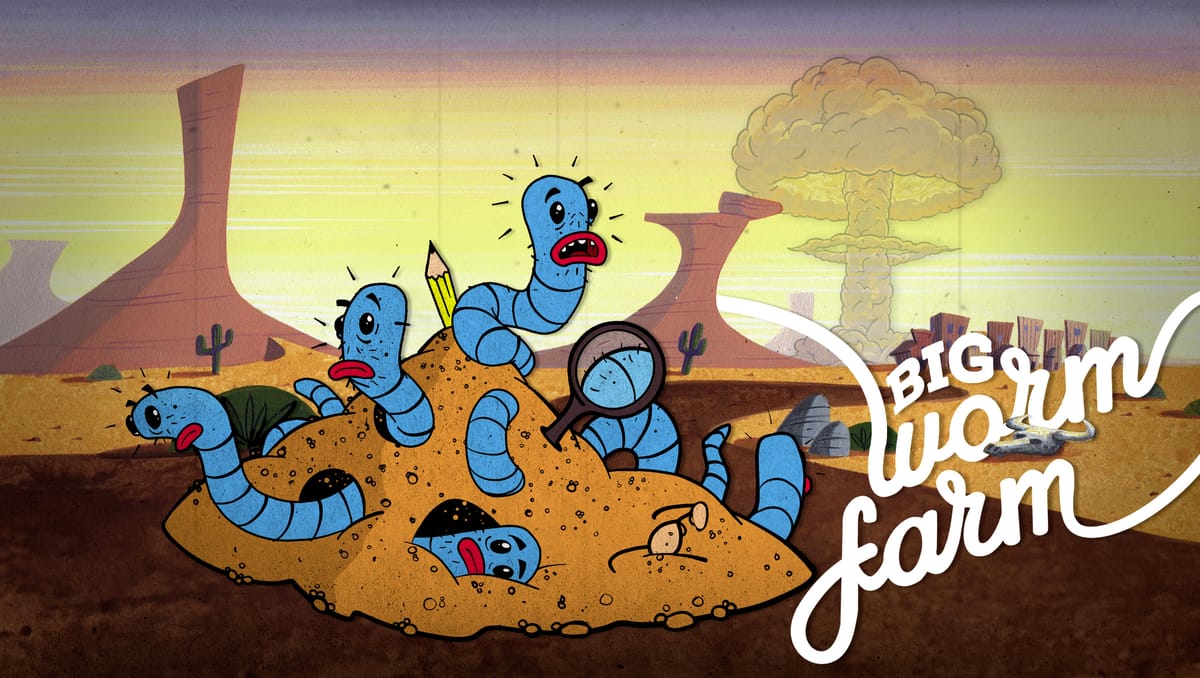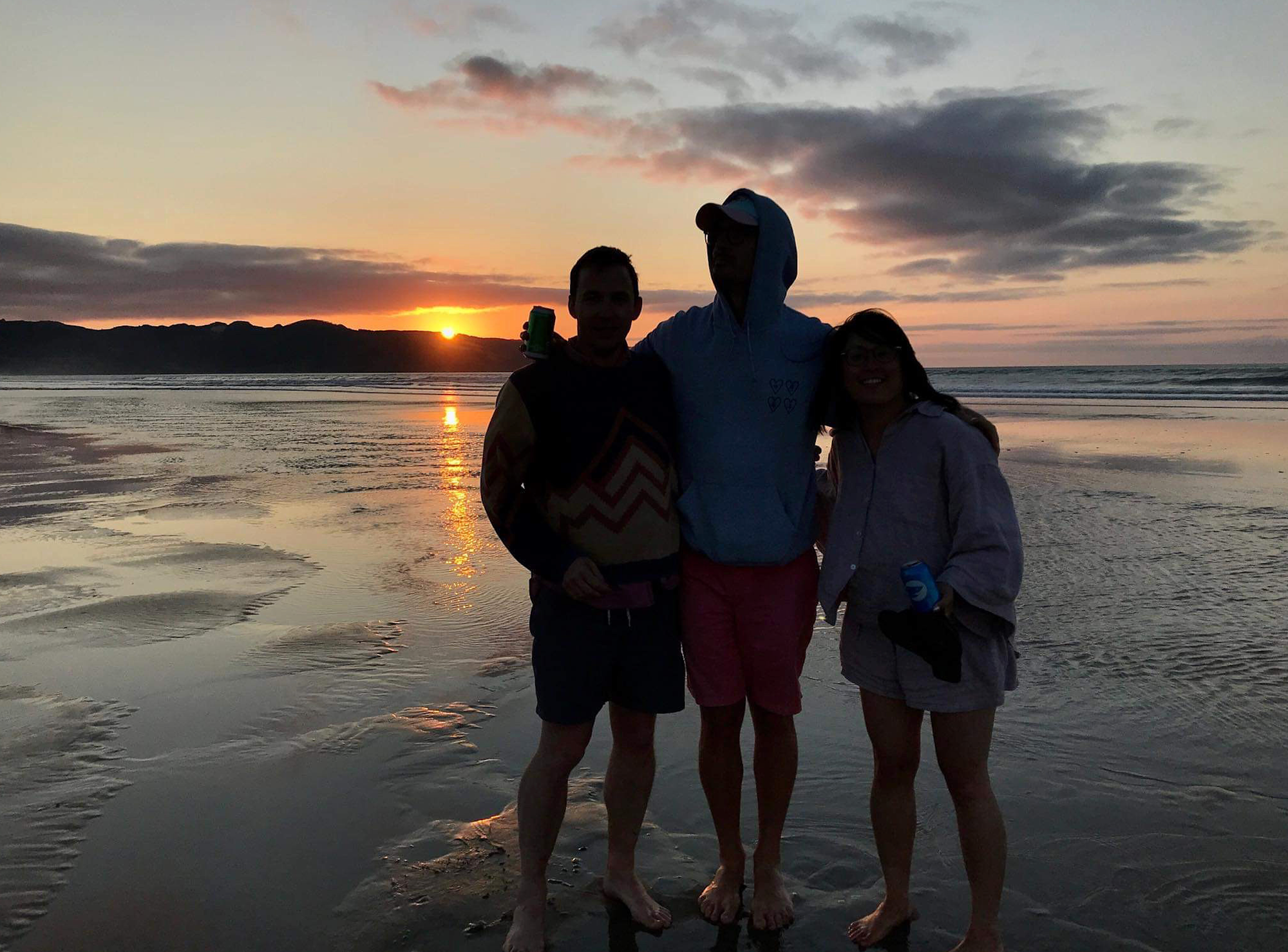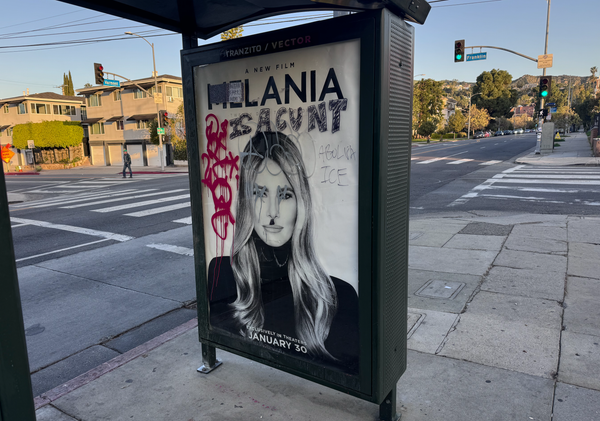Introducing: Big Worm Farm
A fund to support investigative journalism.

Hi,
I am excited to tell you about Big Worm Farm.
Put simply, the main aim of Big Worm Farm is to support investigative journalists from around the world to be able to devote dedicated time to research and report on a specific story, to be published on Webworm.
The stories will capture the spirit of what Webworm is about: taking a reader down a rabbit hole that ends in a place they might not have expected.

What is Webworm?
In case you’re new here, Webworm is an award-winning newsletter run by me, investigative journalist David Farrier. It’s found in subscribers’ email inboxes, or at www.webworm.co.
Since its launch in April 2020, it has broken stories like the systemic abuse taking place in New Zealand’s biggest megachurch, how billion-dollar company Zuru successfully gained access to details of its ‘anonymous’ employees on Glassdoor, and how Lonely Lingerie descended into conspiracy chaos. Stories and wormholes that exist online, and ones that exist in the real world. And sometimes a combination of both.
The newsletter has a dedicated following from around the globe, read across 50 US states and 168 countries.
Webworm’s strong community of readers rally behind stories, and help spread the word — which is how the Arise stories ended up being all over the 6pm news.
My aim with Big Worm Farm is to publish investigations that spread far and wide.
You can read more about Webworm here, see the entire Webworm archive here, and browse some of my favourite stories here. This is an archive of all of Webworm’s megachurch coverage, and here is its work on conspiracy theory culture.

What Webworm is Looking For
To support good investigative journalism!
Webworm is looking for stories by experienced journalists (from anywhere in the world) that will appeal to an international audience. It’s okay if a topic is incredibly specific and local to whatever country you’re in — but it has to have themes and ideas that resonate on a wider scale.
For instance the Webworm story about Arise was incredibly local to New Zealand — but it resonated on a much bigger scale as megachurches are found worldwide.
A story about Peter Thiel’s bunker down under is very specific and local — but it talks to a much bigger story of big tech, money and power. A story about a cult in Iceland may feel specific to a small town, but cults resonate worldwide.
But a story about local body politics, unless it has resonance for someone on the other side of the world, probably wouldn’t be a good fit for Webworm.
Basically imagine someone is reading the piece in Japan, in New Zealand, in the UK and in America. All those readers need to be drawn into the story you’re revealing.
We want stories that are new, surprising, and have the potential to spread further than Webworm. We don’t want stories rehashing an existing issue — we want fresh insights and leads into brand new territory.
I’m keen to stress that this is not the New York fucking Times, which means while stories will have journalistic integrity and all the checks and balances that go along with rigorous reporting, they shouldn’t be dry.
They should feel alive and active.
Webworm is an email newsletter that people get in their inbox — so readers should feel like they are being spoken to. Readers should feel like they are on a journey, one that starts one place and ends up somewhere surprising and new. Writers should almost feel like they are writing an email to a friend.
You’re encouraged to include media like photos and screenshots. If you have receipts, Webworm wants to see them, not read about them. Webworm can host audio and video — so if you have these elements, think about weaving some of them in.
You can swear on Webworm! You can have a sense of humour! Mostly, you need to write like you.
Remember how I said that Webworm is an email? People hate long emails. If your investigation is going to be really long, start thinking how it could be broken up into longer parts that can be sent out over multiple days or weeks. You can be creative, and leave these parts on cliffhangers! Again — this isn’t the NY Times. Webworm has a sense of flavour, with readers who are along for the ride.
As an example, the first part of the Arise trilogy is 4000 words. Part two, 4100 words. Part three, 2400 words. The Lonely Lingerie QAnon story came in two parts, both about 2000 words. And the Zuru vs Glassdoor story was just one piece at 1600 words.
This is an email — people are busy, and things need to feel speedy and alive, never a snore fest.
To reiterate, we’re looking for stories from experienced journalists who know the game and what will be expected when it comes to sources, fairness, and leg work.
What support will Big Worm Farm offer?
- We can offer up to NZD $6,000 in costs — to cover your time, as well as any costs incurred as part of your investigation.
- Webworm will also offer legal advice in the lead-up to publication up to NZD $2000, in case you’re writing about people who love to lawyer up.
Look — you might have a shorter story with a lot of the leg work done that needs $1000 towards it, for your time writing it up. Or maybe it’s $3000 you need.
Maybe you have an amazing piece that fell over at another publication, and you love Webworm, and you just want $500 for your work.
Or, you need a solid few weeks or months of time investigating and digging in, and because the story is important and needs telling, it’ll justify $6000.
It’s not megabucks, but I want to offer you a rate that will give you what you need. That will be fair to you — better than fair — and just as importantly, will let the story be told as best it can.
With Webworm’s reach, its engaged and kind community, and the ability for good stories to be picked up by major outlets — the experience should be a good one.
Who is Big Worm Farm?
So Big Worm Farm is me, David Farrier — along with two colleagues.
Rosabel Tan is here to run the programme. She’s a producer who runs a bunch of journalism programmes in New Zealand like The Next Page and Data Aotearoa. She also produced Webworm, Arise!.
Her main job on Big Worm Farm will be fielding questions as we go through the approval process, creating the longlist, liaising with writers and providing them with ongoing support.
Hayden Donnell (longtime Webworm contributor and reluctant friend to David since university) will be helping with the shortlist, and giving editorial support for the investigations being written.

How do I apply?
To pitch us, just fill out this form. Just one pitch per person (or team) please, just so things keep under control.
Because this is a new initiative, we’ll be running this in ‘seasons’. The first submission deadline is by the end of day on Friday 22 March 2024.
We’re a tiny team, and we have no idea how many submissions we will get — so chances are you’ll only hear from us if we want to talk further. Please don’t be insulted if we don’t get back to you — it just means this particular story wasn’t a fit for Webworm.
We’ll select up to three projects that we see as a good fit for Webworm. If you are one of those projects, we will get back to you by Monday 22 April, 2024.
After that we’ll probably make some tweaks to Big Worm Farm based on what works and what doesn’t and hopefully run it again!
In the meantime, feel free to tell anyone who might be interested in Big Worm Farm: webworm.co/p/bigwormfarm.
If you have any questions, sound off in the comments below — I will be checking in to answer them. If you want the comments to be private — I am davidfarrier@protonmail.com.
David.

Big Worm Farm, like everything here on Webworm, is made possible through the generous support of paying Webworm subscribers over the last few years. If you’re not a subscriber but would like to be one, you can sign up here. Only do this if it causes you zero financial hardship.




